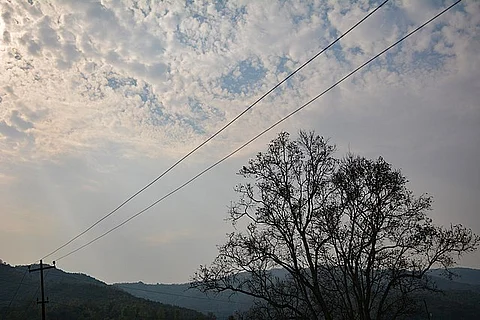

Authorities in India’s northeastern state of Manipur have imposed a five-day curfew and internet shutdown across five districts, including Imphal West and Bishnupur, following violent protests over the arrest of leaders from the Meitei radical group Arambai Tenggol.
The unrest, which erupted on June 7, saw mobs storm police posts, torch vehicles, and block roads, deepening a two-year ethnic conflict that has killed over 260 people and displaced 60,000.
The crackdown began when India’s Central Bureau of Investigation (CBI) arrested five Arambai Tenggol members, including chief Asem Kanan Singh, at Imphal airport. The group—accused of orchestrating violence against the minority Christian Kuki community—enjoys significant support among the majority Hindu Meitei. Protests escalated rapidly, with security forces firing tear gas and live rounds, injuring a 13-year-old boy.
The state government suspended internet and mobile data services (including VPNs) citing “inflammatory content” on social media. District magistrates banned gatherings of four or more people and prohibited carrying weapons. This marks Manipur’s 47th internet shutdown since 2023, totaling over 5,000 hours of blackouts. Arambai Tenggol retaliated by declaring a 10-day shutdown in valley districts.
Over 50,000 internally displaced persons (IDPs) remain trapped in relief camps with inadequate healthcare, sanitation, and nutrition. Amnesty International reports outbreaks of measles and dysentery, with families sharing makeshift toilets. Many cannot return home due to destroyed properties or occupation by armed groups. A Kuki farmer described fleeing as Meitei mobs burned his village: “We climbed trees and watched them destroy everything”.
The violence stems from a May 2023 court order granting Meiteis access to tribal benefits, igniting land-rights disputes. Former Chief Minister N. Biren Singh (Meitei) resigned in February 2025 after audio tapes allegedly revealed he instigated violence. His administration faces accusations of arming Meitei militias and ignoring attacks on Kukis. Despite federal intervention (President’s Rule), rehabilitation remains stalled.
Meiteis (56% population, valley-dwelling) dominate politics, while Kukis (43%, hill-dwelling) hold protected tribal status. Meiteis seek tribal rights to access hill lands, which Kukis view as land grabs. Meiteis are predominantly Hindu; Kukis are Christian. BJP policies amplified Hindu majoritarianism, with Singh vilifying Kukis as “illegal immigrants” and “drug smugglers”. Over 6,000 arms were looted from police stations, fueling a civil war-like divide. Buffer zones now separate communities.
Human Rights Watch and Amnesty International demand accountability for sexual violence, arson, and extrajudicial killings. The UN notes India’s failure to uphold IDP rights under international law.